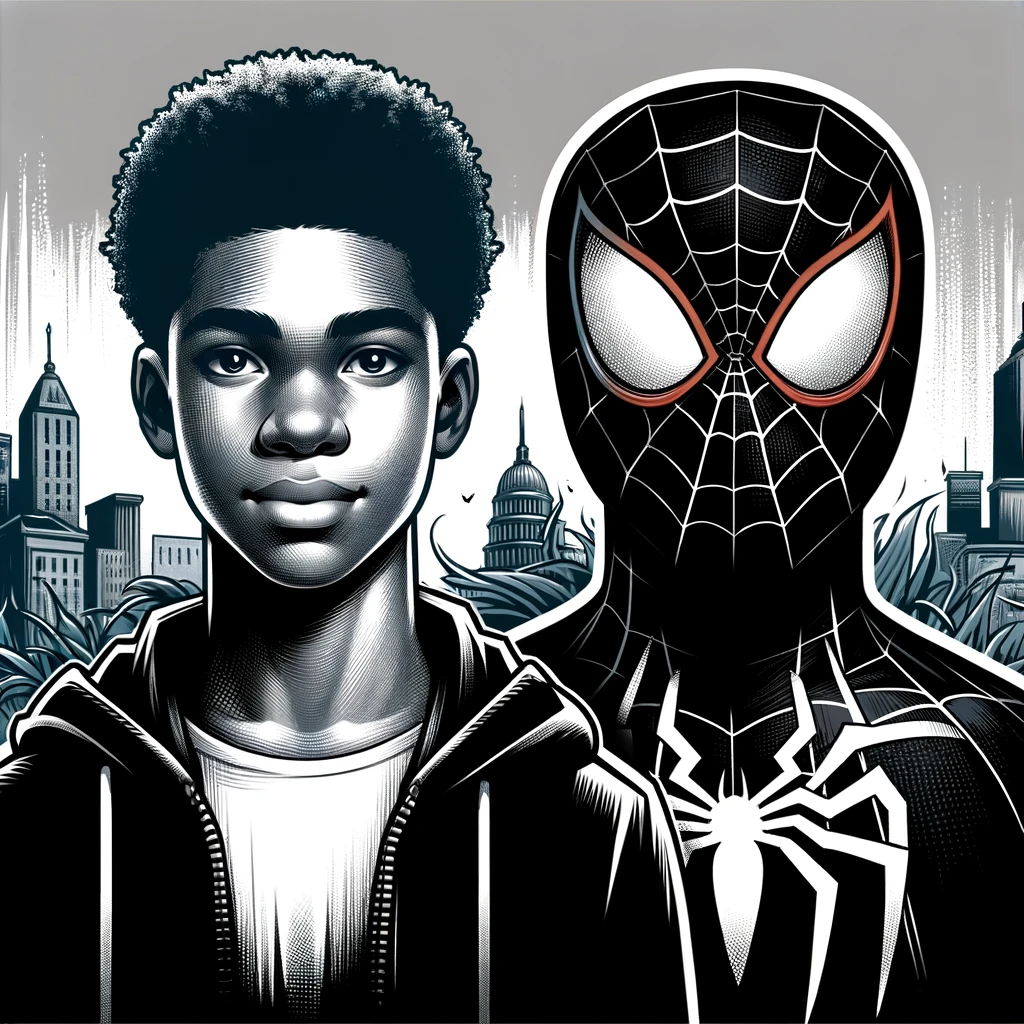
Miles Morales is not your typical Spider-Man. He represents a new generation of heroes deeply rooted in today’s youth’s culture and experiences. The “Spider-Man: Into the Spider-Verse” series captures this essence beautifully, with a soundtrack featuring some of hip-hop‘s biggest names. The music in the series plays a crucial role in shaping the narrative, adding emotional depth, and connecting with the audience on a cultural level.
Hip-Hop Soundtrack and Cultural Representation
The “Spider-Man: Into the Spider-Verse” soundtrack blends hip-hop, trap, and R&B, featuring artists like Post Malone, Swae Lee, Nicki Minaj, and Jaden Smith. These tracks are not just background music but integral to the storytelling, reflecting Miles’ journey and the urban landscape he navigates. For instance, Post Malone and Swae Lee’s “Sunflower” became an anthem for the film, symbolizing Miles’ struggles and triumphs.
As a genre, hip-hop has always been about expressing the realities of life in urban settings, and Miles’ story mirrors this. His experiences as a young Afro-Latino teen growing up in Brooklyn resonate with many hip-hop artists and fans who see their lives reflected in his story. This cultural representation is crucial as it provides a platform for underrepresented voices in mainstream media.
Influence on Hip-Hop Artists
The “Spider-Man: Into the Spider-Verse” series has had a noticeable impact on hip-hop artists, many of whom draw inspiration from Miles Morales’ story. Artists see in Miles a reflection of their struggles and aspirations. The character’s resilience, creativity, and ability to overcome adversity resonate deeply within the hip-hop community.
For example, Jaden Smith, who contributed to the soundtrack, has spoken about how the character of Miles Morales inspires him. The film’s visual style, with its vibrant colors and graffiti-inspired aesthetic, also mirrors the artistic expression found in hip-hop culture. This visual representation reinforces the connection between the two worlds and inspires artists to push the boundaries of their creativity.
Benefits for Fans
For fans, especially those from similar backgrounds as Miles Morales, seeing a hero who looks like them and shares their cultural experiences is incredibly empowering. It fosters a sense of belonging and representation often missing in mainstream media. The hip-hop-infused soundtrack also connects with fans on a deeper level, providing a soundtrack to their own lives.
The films encourage fans to embrace their identity and cultural heritage. Miles Morales’ story teaches them that they can be heroes in their own right, regardless of their background. This message is essential for young fans who are still figuring out who they are and what they want to be.
Inspiration for Future Projects
The success of the “Spider-Man: Into the Spider-Verse” series demonstrates the potential for future projects that blend hip-hop culture with mainstream media. It opens the door for more stories that reflect the diverse experiences of today’s youth. Filmmakers and artists can take inspiration from the series’ success and continue to push for representation and cultural authenticity in their work.
The entertainment industry can build a more inclusive future by continuing to create content that resonates with underrepresented audiences. With its global influence, hip-hop is a powerful storytelling and cultural expression tool. Combined with the superhero genre, it creates a compelling narrative that speaks to a broad audience.
The “Spider-Man: Into the Spider-Verse” series is more than just a set of films; it is a cultural phenomenon that bridges the gap between the world of superheroes and hip-hop. The series celebrates its characters’ and audience’s diversity and resilience through its music, visuals, and storytelling. By drawing inspiration from Miles Morales and his journey, hip-hop artists and fans can find a source of empowerment and creativity. As we look to the future, the impact of these films will continue to inspire new generations of artists and storytellers, proving that representation and cultural authenticity are not just important but essential.

